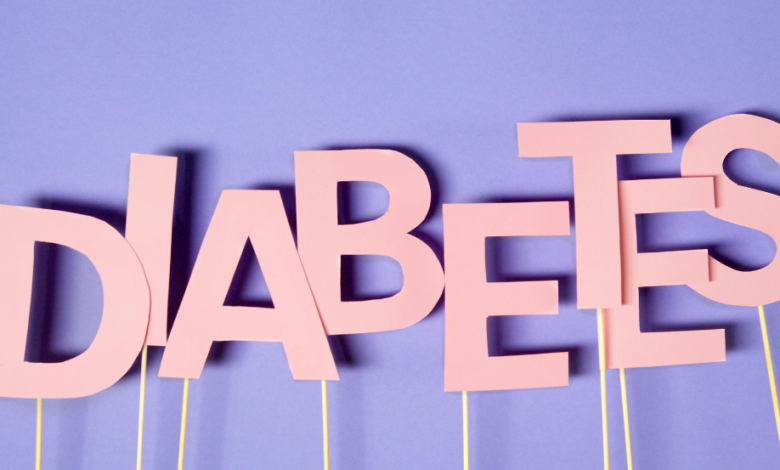Red Flag Signs of Diabetes in Your Mouth: ‘See Your Doctor’

Diabetes is a chronic condition that affects the body’s ability to manage blood sugar levels, leading to potential complications in different organs such as the heart, kidneys, and nerves. One area often overlooked in diabetes care is oral health. Changes in the mouth, gums, and teeth can serve as early warning signs of diabetes, showing that blood sugar levels may be out of control. Recognizing these “red flags” in the mouth is important for early stepping and managing the condition effectively.
This article will explore the key red flag signs of diabetes that can emerge in your mouth, explain why they occur, and highlight the importance of seeing a doctor or dentist if you experience any of them. We will also discuss the link between diabetes and oral health, and how direct both can improve your overall well-being.
Dry Mouth (Xerostomia)
Dry mouth, or xerostomia, is one of the first red flags of diabetes. Saliva plays an important role in oral health by helping to neutralize acids, wash away food particles, and control infections. When blood sugar levels are poorly controlled, it can affect the salivary glands, leading to decreased saliva production. This results in a dry mouth, which may cause difficulty swallowing, speaking, or tasting food.
In people with uncontrolled diabetes, dry mouth can also contribute to an increased risk of tooth decay, gum disease, and other oral infections. If you often experience a dry mouth, it’s important to consult with your healthcare provider to check your blood sugar levels and discuss potential treatments.
Gum Disease (Periodontitis)
Gum disease, or periodontitis, is a serious oral condition that is common in individuals with diabetes. High blood sugar levels reduce the body’s ability to fight infections, including those that affect the gums. This allows bacteria to thrive in the mouth, leading to inflammation, infection, and finally gum disease.
Signs of gum disease include:
- Red, swollen, or bleeding gums
- Resolute bad breath
- Gums that pull away from the teeth, creating pockets that can become infected
- Loose teeth
- Pain when chewing or touching the gums
Gum disease and diabetes create a cruel cycle. Not only can gum disease make it harder to control blood sugar levels, but poorly controlled diabetes can also increase the risk of developing gum disease. Managing diabetes and maintaining good oral hygiene can help control or decrease the impact of gum disease.
Recurrent Infections (Candidiasis)
People with diabetes are more susceptible to infections, extremely fungal infections like candidiasis (oral thrush). High blood sugar levels weaken the immune system, creating an environment in the mouth where the Candida fungus can thrive. Candidiasis appears as a white or creamy mark on the tongue, inside the cheeks, gums, or roof of the mouth.
Other signs of oral thrush include:
- Redness or soreness in the mouth
- A cotton-like feeling in the mouth
- Difficulty swallowing
- Break or redness at the corners of the mouth
If you notice these symptoms, it’s important to see your doctor as natural candidiasis can compound and lead to other complications, especially in people with diabetes.
Changes in Taste (Dysgeusia)
Dysgeusia refers to a change in the sense of taste, often represented as a metallic, sour, or bitter taste in the mouth. In individuals with diabetes, high blood sugar levels can affect taste buds and the way the brain processes taste signals. Medications used to treat diabetes, such as oral antihyperglycemic drugs, can also cause taste disturbances.
If you experience resolute changes in taste, it is worth discussing this symptom with your doctor. Although it may seem minor, it could show that your blood sugar levels are not well controlled.
Mouth Sores or Ulcers
Mouth sores, or ulcer sores, are another red flag for diabetes. These painful lesions can develop inside the cheeks, on the gums, tongue, or the roof of the mouth, and they can make it difficult to eat or talk. Individuals with diabetes, especially those with poorly controlled blood sugar, are more prone to repeated mouth sores.
If these sores don’t heal or continue to appear, it could signal an issue with blood sugar regulation. Seeing a healthcare provider for judgment and proper treatment is important if mouth sores continue.
Bad Breath (Halitosis)
Bad breath, or halitosis, is another common symptom of diabetes, mainly when blood sugar levels are high. When blood sugar is not properly managed, the body may enter a state of ketosis, breaking down fat for energy rather than glucose. This process produces chemicals called ketones, which can give the breath an individual fruity or acetone-like odor.
Resolute bad breath can also be a sign of gum disease or oral infections, both of which are more common in people with diabetes. If bad breath continues despite good oral hygiene, it’s a good idea to see a dentist or doctor to rule out any prime issues.
Slow Healing of Oral Injuries
People with diabetes often experience slow healing, including in the mouth. Whether it’s a minor cut from brushing your teeth too hard or a more serious injury, the healing process is slower when blood sugar levels are high. This is because reised glucose levels impair circulation and reduce the body’s ability to repair tissue.
If you notice that cuts or sores in your mouth take longer than usual to heal, it could specify that your diabetes is not under control. It’s important to address this with your doctor to avoid the risk of infection or other complications.
Loose Teeth or Teeth Shifting
As gum disease progresses, it can affect the bone that holds your teeth in place, potentially causing teeth to become loose or shift positions. This is mainly regarding individuals with diabetes, as high blood sugar weakens the immune system, making it harder for the body to fight off infection.
If you notice that your teeth are becoming loose or transfer it may be a sign of advanced gum disease. Seeing a dentist promptly is important to control further damage and maintain your dental health.
Bright Red or Swollen Gums
If your gums appear bright red or are swollen, it could be a sign of gum inflammation, often caused by periodontal disease. In people with diabetes, the immune system makes a deal which makes it easier for bacteria to accumulate and cause infections. Swollen gums that bleed when brushing or polishing are often signs of gum disease.
Bright red or swollen gums should not be ignored, especially if the condition continues. Crude gum disease can lead to serious complications, including tooth loss and systemic infections.
Tooth Sensitivity or Pain
Tooth sensitivity or pain can also be a sign of poorly controlled diabetes. High blood sugar levels create an environment in the mouth that promotes bacterial growth, increasing the risk of cavities, gum disease, or ulcers. People with diabetes are more likely to develop tooth decay due to plate buildup and the effects of high glucose on oral tissues.
If you experience resolute tooth sensitivity or pain, especially when eating or drinking hot, cold, or sweet foods, seeing a dentist to address any potential dental issues is important.
Why Early Detection Matters
Recognizing the red flag signs of diabetes in your mouth is crucial for early breaking. Addressing oral health problems early on can control serious complications such as advanced gum disease, tooth loss, and infections that may spread throughout the body. Moreover, managing your blood sugar levels effectively and maintaining good oral hygiene can decrease the risk of developing these complications.
Oral health and overall health are closely linked. Poor oral hygiene can make it harder to control blood sugar, while uncontrolled blood sugar can increase oral health issues. This is why regular dental visits, good oral hygiene practices, and effective diabetes management are important for those living with the condition.
Conclusion
Your mouth can offer valuable insights into your overall health, mainly when it comes to diabetes. If you notice red flag signs such as dry mouth, gum disease, bad breath, or mouth sores, it’s important to see your doctor or dentist for evaluation. Early detection and treatment of oral health issues can help control further complications and improve both your oral and overall health.
For individuals with diabetes, regular dental checkups, maintaining good oral hygiene, and managing blood sugar levels are key steps in controling oral health problems. By prioritizing your oral health, you are not only protecting your teeth and gums but also supporting your overall well-being.



